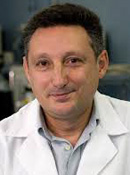The CNIC's flow cytometry unit provides researchers access to high-end flow cytometers.
The CNIC Viral Vectors Unit (ViVU) is designed to develop tools for gene delivery and gene-therapy in small and large animals. ViVU aims to provide the research community with lentivirus, adenovirus (Ad) and adeno-associated virus (AAV) for basic and preclinical studies.
The Microscopy and Dynamic Imaging Unit provides state-of-the-art optical and fluorescence microscopy technologies. Several wide-field and confocal microscopes support the use of super resolution, TIRF and multiphoton applications for multicolor immunofluorescence /multiparametric imaging in cells, tissue, and small model organisms in vitro and in vivo.
The Advanced Imaging Unit (AIU) offers a portfolio of cutting-edge pre-clinical imaging services for small animals (ultrasound, magnetic resonance, PET/CT, optical imaging). It provides support to the centre's research groups for the assessment of various animal models. Since June 2018, the Unit holds the ISO 9001:2015 quality certificate.
After the completion of the Human Genome Project in 2003, genomics has progressively had an important impact in basic and translational Research.
The main function of the Pluripotent Cell Technology Unit is to provide technological innovation, support and scientific services to CNIC researchers in the generation of biological models, in vivo and/or in vitro, through the manipulation of mouse embryonic stem cells (mESC) and human induced pluripotent cells (hiPSC).
The Transgenesis Unit (TU) has, as main objective, the production of genetically engineered mice by artificially introducing foreign DNA molecules into their genomes (the so called transgenic mice) and supply them, as required, to the different CNIC scientific groups in accordance with their research need.
The CNIC Proteomics Unit offers support to researchers from the CNIC and other institutions, both public and private. The Unit´s work centres on the separation, identification, quantification and characterisation of proteins in biological systems by multidimensional liquid chromatography and mass spectrometry-based proteomics analysis.
The Unit for the Coordination of Clinical Trials and Clinical Research with Medicines and Healthcare Products (UCEC) will be key to CNIC to reinforce its actions in clinical research in the cardiovascular area, particularly in clinical trials.
In the last twenty years, data science has become a crucial tool in biomedical research. At the CNIC Bioinformatics Unit we blend the latest developments in Computational Biology and Statistical modeling with deep molecular phenotyping of large human cohorts and animal models to improve our understanding of cardiovascular diseases and also of aging-related disorders.
The mission of the comparative medicine unit at the National Centre for Cardiovascular Research (CNIC by its Spanish acronym) is to advance knowledge and improve health and well-being of humans and animals through a service of excellence to the investigator.
















